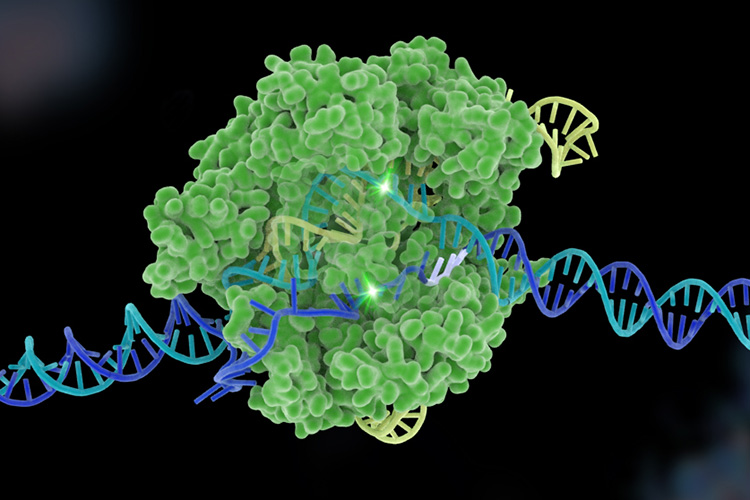U.S. patent office indicates it will issue third CRISPR patent to UC
Patent involved in interference proceedings will add to university's gene-editing portfolio

February 8, 2019
Patent involved in interference proceedings will add to university’s gene-editing portfolio
The U.S. Patent and Trademark Office has issued a notice of allowance for a University of California patent application covering systems and methods for using single molecule guide RNAs that, when combined with the Cas9 protein, create more efficient and effective ways for scientists to target and edit genes. U.S. patent application number 13/842,859, which had notably been examined in advance of a prior interference proceeding involving the Broad Institute, specifically focuses on methods and systems for modifying a target DNA molecule in any setting, both in vitro and within live cells, using one or multiple single guide RNAs, across every cell type. The associated patent is expected to issue in the next 6-9 weeks.
This CRISPR-Cas9 DNA-targeting technology, invented by Jennifer Doudna and Martin Jinek of the University of California, Berkeley, along with Emmanuelle Charpentier at Umea University and Krzystof Chylinski at the University of Vienna, is a fundamental molecular tool for editing genes. Together, this patent application and prior U.S. Patent Numbers 10,000,772 and 10,113,167, cover CRISPR-Cas9 methods and compositions useful as gene-editing scissors in any setting, including in vitro, as well as within live plant, animal and human cells.
“We are pleased the patent application is now allowed and that the issued patent will encompass the use of CRISPR-Cas9 technology in any cellular or non-cellular environment. We expect to see continued momentum in the expansion of UC’s CRISPR patent portfolio in the coming months,” said Eldora L. Ellison, Ph.D., lead patent strategist on CRISPR matters for the University of California and a director at Sterne, Kessler, Goldstein & Fox. “The steadfast protection of the CRISPR intellectual property pioneered by the Doudna-Charpentier team is wholly focused on the improvement of human welfare.”